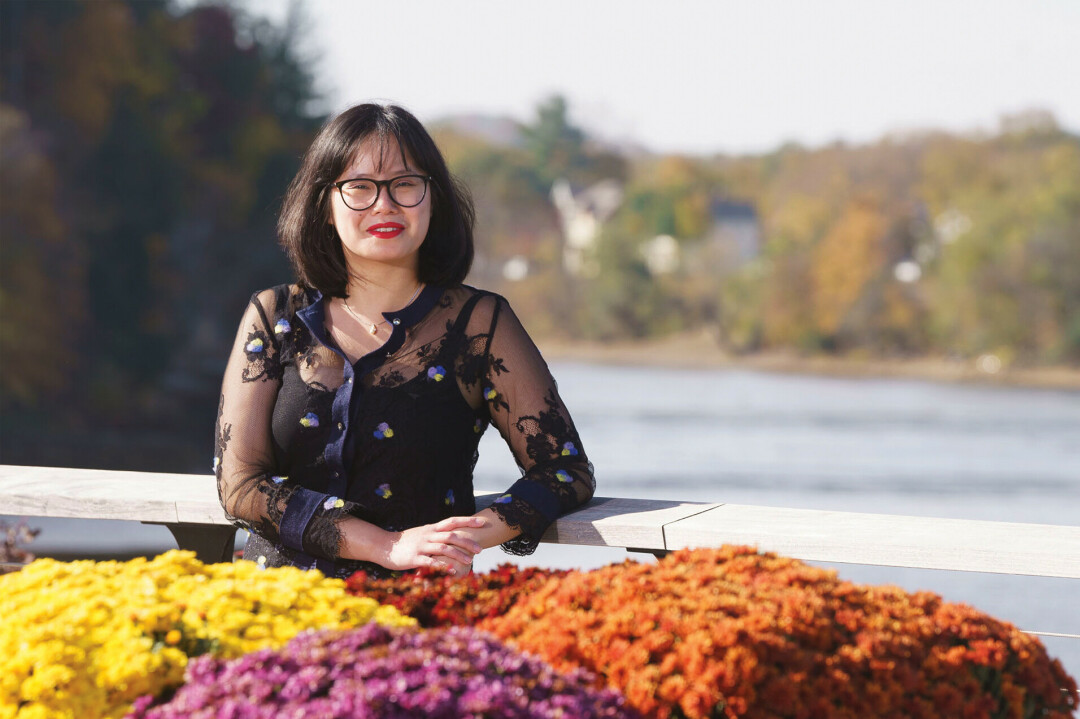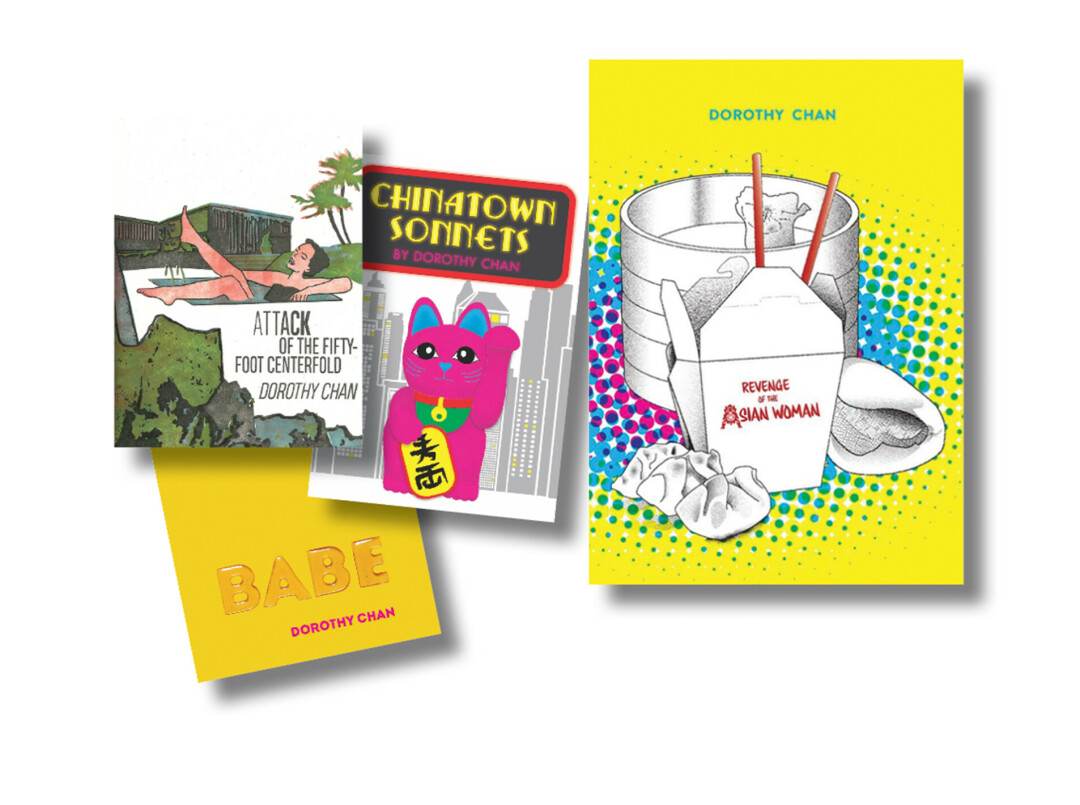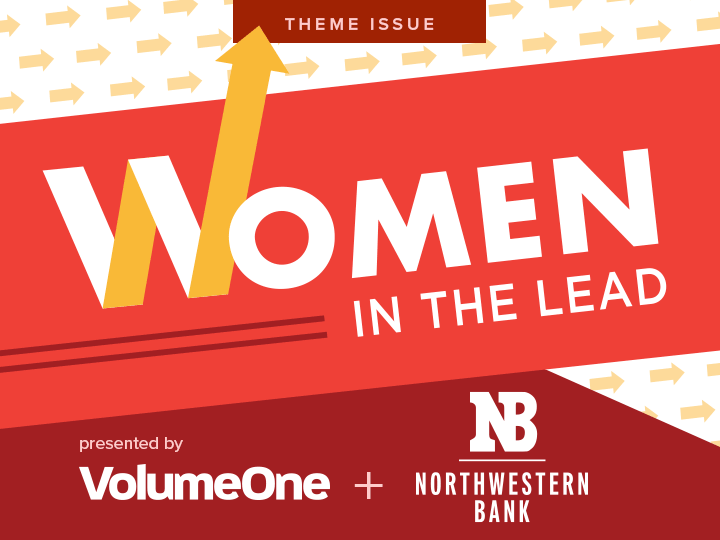UWEC’s Dr. Dorothy Chan Finds Joy in Community
acclaimed writer, educator receives Poorman Award for Outstanding Achievement on Behalf of LGBTQ+ People

Having joined UW-Eau Claire’s faculty ranks just a few years ago in 2019, Dr. Dorothy Chan’s recognition in receiving this year’s Poorman Award for Outstanding Achievement on Behalf of LGBTQ+ People emphasizes their influential efforts in creating a truly safe, inclusive campus climate for the LGBTQ+ community. Chan’s advocacy and solidarity has been felt in waves outside of campus too.
At just age 32, Chan has carved out a space for themself, unabashed in their embrace of their identity, as shown and felt in their work. An incredibly accomplished writer, Chan is set to publish their fifth collection of poetry, Return of the Chinese Femme, sometime in 2023-24, and they recently celebrated the two-year anniversary of Honey Literary, a literary arts journal and organization focused on platforming work by femmes and queer folks of color.

As an assistant professor of English at UWEC, a large part of Chan’s work is mentoring students, specifically those in marginalized communities. As faculty advisor of Leaders Igniting Transformation (LIT) and the QTPOC (queer, transgender, people of color) Student Group at the university, Chan purposefully spends much of their time bonding with students who exist outside of normative spheres.
“(Receiving the Poorman Award) was just a very validating, emotional moment, because I feel that a big part of being an advocate or activist is we believe strongly in our principles but a big part of that is us doing that work because it’s what we ultimately care about most,” Chan explained. “So, to get an award on top of that is just amazing.”
Calling on both their own experiences as a previous student and not seeing many educators or people in higher positions who looked like them, as well as the experiences shared by peers, friends, and their own students, Chan continues to question and push the current bounds of diversity in education.
“One of the things I said when I got the Poorman Award was, ‘I am very honored to receive this award, but we still have to work a lot harder,’” they recalled. “I think that that is a really big point of emphasis because at the end of the day, (we have to think about) how we can actually create an environment where queer and trans students and faculty of color are not just acknowledged, but actually celebrated.”
Prior to moving to Wisconsin after accepting the teaching position at UWEC, Chan had earned a bachelor’s degree in English from Cornell University, a master’s degree in creative writing from Arizona State University, and completed their doctoral studies in creative writing and poetry at Florida State University. Chan recalls their time at Cornell with warmth, but said it was there they realized life outside of school would be hard.
Having been part of a variety of editorial mastheads and often being the only person of color and/or queer person part of them, and being a professional in a white-dominated field, Chan said there has been no shortage of uncomfortable situations stemming from their identity. This barrier is something their work actively resists and pushes against.
“I want to clarify, yes, I have met allies along the way. Unfortunately, sometimes our negative experiences can overtake our positive ones, and they’re the ones that can really stick and lead into greater points of trauma,” Chan explained. “I have seen so many writers of color who have to put in at least five times or 10 times the amount of work just to get an ounce of the recognition a white writer might, and that’s the thing that becomes really hard, and what I like to call the ‘minority tax.’ ”
Chan explained the minority tax as the heavier load folks of color and queer people take on simply by existing in multiple intersections, and while there is so much beauty to be found and given from that, it is also a barrier in our current world.
“I think one of the hardest things in the world when you’re a queer femme of color – in my case, since I identify as non-binary and am a femme of color – is the fact that things are always going to be harder, period,” Chan said. “There are moments when you are celebrated, but the literary world and world in general is still an extremely white, cis-het, heternormative, able-bodied space, and the world can be very cruel.”
“When I talk to young people of color, I always say, ’Remember where your strength actually comes from; a certain truth prevails in your culture and identity.’ ”
–Dr. Dorothy Chan, writer and professor
Yet Chan continues to make strides in their professional and personal life to disrupt the institutions of power that hinder marginalized communities. Chan said they strive for young people of color to achieve everything they dream of and to do so with fewer struggles than those who came before them. “When I talk to young people of color, I always say, ‘Remember where your strength actually comes from; a certain truth prevails in your culture and identity.’”
Joy is something that keeps that fire and hope for a better world, alive. Chan said they love seeing their friends and peers succeed and sharing that joy. “I think that, again, communities of color, we have this special bond and it’s really beautiful.”
Visit Dorothy Chan’s website to learn more about them and see their collections of written work, and head over to Honey Literary’s website to read previous issues and learn more about the organization.


